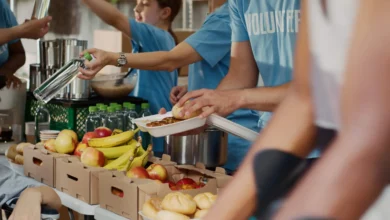Tips to Help Your Child Develop Critical Thinking Skills
Thinking critically is one among the imperative skills required for a child to function well. In fact, the author of “Mind in the Making,” Ellen Galinsky includes the “Seven essential life skills needed by every child.” Critical thinking is one of those seven essential life skills as per him. In the case of children who are diagnosed with a Neurotypical or behavioural disorder/challenge, the need to develop critical thinking skills is more than as compared to other children.
Generally, a child therapist or child behaviour specialist works on the development of critical thinking skills, apart from the other requisite areas in a child that needs to be worked upon. However, unlike a Child therapist, it is a parent or a caregiver who spends the maximum time and understands their child. So, better results can be obtained when parents themselves take the initiative to develop critical thinking skills in their child, in addition to the child behaviour specialist therapies. Moving forward, here are a number of effective tips and suggestions that you can practice with your child to help them develop critical thinking skills.
Utilize thinking routines
The concept of thinking routines was originally introduced by the Harvard School of Education in context with the Visible Thinking Project. Thinking routines consist of a set of statements and questions which are flexibly utilized to strengthen a bunch of targeted skills on a regular basis. Specifically, in the case of those struggling with pervasive developmental disorders, using thinking routines for skill development not only helps enhance critical thinking skills but also fulfils their need for a structured routine. This routine is also called as “See-Think-Wonder” routine.
Here is an instance of how you can practice it with your child. Pick up an object that your child is interested in and ask them to observe it. It can be an artistic piece, an object they encounter outdoors or anything similar. Based on the object, as you child these 3 questions- What do you see? And your child may answer “I see a …” Next, ask them “What do you think about the object?” They’ll answer something like, “I think..” Lastly, ask them “What does this make you wonder?” And they’ll probably answer, “I wonder..”
This will trigger the ability of the child to make rational interpretations and creative-thinking. Also, one should prompt the kid and ask for a reason or reasons behind their answer. This will help the child eventually develop confidence in independently carrying out such thinking patterns.
Help your child build a basic problem-solving strategy
The major component of effective critical thinking is problem-solving. Rather than taking the initiative of solving all the problems for your child, teaching them to solve their problems themselves would pave the way for a bright future of your child. For this, teach them the sequential steps they need to follow for solving a problem.
A study, “Increasing the Problem-Solving Skills of Students with Developmental Disabilities” was published in the Remedial and Special Journal, wherein their research team put to practice sets involving 3-phase-problem-solving strategy. Here is how you can practice the 3 phases with your child.
- Fix a goal: When there is a problem, encourage the child to ask and then try to answer what the problem is. Further, fix a goal to solve it.
- Take an action: Next, you need to encourage the kid to ask & answer this question- “What can be done to solve the issue or problem?” This will encourage them to develop a plan of action.
- Adjust the pre-decided goal or action-plan: Ask the child to thoroughly evaluate all possible results for the formulated action plan. Encourage them to ask this question to themselves- “Did the action-plan solve the issue?” Accordingly, adopt the plan, if it does.
Ask Open-Ended Questions
Instead of providing with answers automatically to the questions that the kids raise about the everyday incidents or objects, you should ask questions in return which can assist them to think in a critical manner and thus develop their critical sense. You can ask them about what they are thinking about the particular situation or what ideas they have. But no matter what they say, you should try to respect their opinion even if they are wrong. You should always be encouraging and say something like “Interesting” or “that is a good way of looking at it” and then follow it up with positively-phrased questions like “what makes you think that way?” or “I will love to hear your thoughts about the same!”. You can also try to know their ideas by asking questions like “Where do you think we can get solutions for this?” or “How do you think of solving this issue?”. Such practices will assist your child to exercise their creative and critical mind and you may be astonished with their answers. This is a great way for them to gain insights regarding complex everyday issues and be familiar with them.
Make use of resources
Specialized resources that are tailor-made as per the specific skill development needs of the child are an excellent medium to encourage critical skills in a child with special needs. Look out for a good child development clinic that has experienced and certified child behaviour specialist. Such professionals can suggest a handful of useful resources and tools that can help your child develop critical thinking ability.
Practice these tips with your child to help him/her develop effective critical thinking skills. While you are at it, remember to stay positive and patient with your child while they learn it. Also, you can take the help of an expert professional who can guide you better. Mom’s Belief has a team of dedicated and experienced child behaviour specialists who offer a wide range of tools and resources based on the key development areas of a child that needs to be worked upon. These professionals also guide you about the correct usage of resources with your child.




